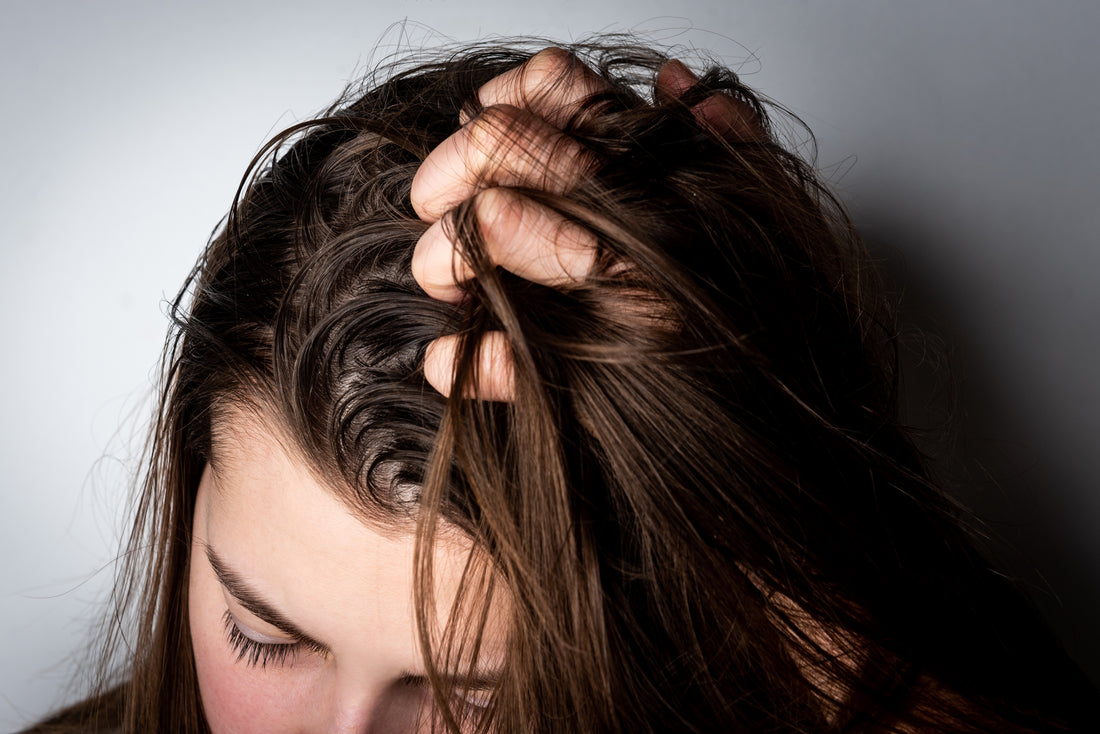
Reasons for Hair Loss: Stress and Its Impact on Hair Health
Share
Hair loss can be a troubling issue that affects individuals across different age groups and genders. One of the less discussed but significant reasons for hair loss is stress. At Life Lab 8, we believe in addressing the root causes of hair thinning and loss, providing solutions that go beyond the surface. This article delves into how chronic stress can lead to hair thinning and loss, and offers tips on stress management techniques to help maintain a healthy scalp and hair.
Understanding the Connection Between Stress and Hair Loss
Hair goes through a natural cycle of growth, rest, and shedding. However, chronic stress can disrupt this cycle, leading to increased hair shedding and slower regrowth. When the body experiences stress, it triggers a series of physiological responses that can adversely affect hair health. Elevated levels of cortisol, the stress hormone, can lead to an imbalance in the scalp environment, making it more prone to hair loss. Among the various reasons for hair loss, stress stands out as a major factor.
Stress-induced hair loss typically manifests in three ways: telogen effluvium, alopecia areata, and trichotillomania. Telogen effluvium is a condition where stress pushes hair follicles into the resting phase, causing them to fall out more easily. Alopecia areata, an autoimmune condition, can be triggered by severe stress, leading to patchy hair loss. Lastly, trichotillomania involves an irresistible urge to pull out one's hair, often exacerbated by stress and anxiety.
The Science Behind Stress and Hair Health
The body’s response to stress involves the release of cortisol, which impacts various bodily functions, including hair growth. Cortisol can cause a reduction in the production of essential hair growth factors, such as keratin and collagen. These proteins are crucial for maintaining strong, healthy hair. Additionally, chronic stress can constrict blood vessels, reducing blood flow to the scalp and depriving hair follicles of necessary nutrients.
Moreover, stress can lead to inflammation, which affects the hair follicles and can result in hair shedding. Inflammation triggers the body's immune response, which, while beneficial in small amounts, can be detrimental when prolonged. The scalp’s microenvironment becomes hostile to hair growth, leading to thinning and loss.
Signs of Stress-Induced Hair Loss
Recognizing the signs of stress-induced hair loss is the first step towards addressing the issue. Here are some common indicators:
1. Sudden Hair Shedding: A noticeable increase in hair fall, especially during washing or brushing.
2. Thinning Hair: Hair becomes visibly thinner, particularly around the crown or temples.
3. Patchy Hair Loss: Circular patches of hair loss, often linked to alopecia areata.
4. Scalp Irritation: Itchy, flaky, or inflamed scalp, which can be a sign of stress-induced inflammation.
Managing Stress for Better Hair Health
Effective stress management is crucial for maintaining a healthy scalp and preventing hair loss. Here are some techniques to help you manage stress and improve your overall hair health:
1. Mindfulness and Meditation: Incorporating mindfulness practices such as meditation can help reduce stress levels. Techniques like deep breathing, progressive muscle relaxation, and guided imagery can calm the mind and decrease cortisol levels.
2. Regular Exercise: Physical activity is a natural stress reliever. Exercise increases endorphin production, which enhances mood and reduces stress. Activities like yoga, running, or even a daily walk can significantly improve mental health and, consequently, hair health.
3. Healthy Diet: Consuming a balanced diet rich in vitamins and minerals supports hair health. Foods high in omega-3 fatty acids, biotin, zinc, and vitamin E can promote hair growth and strength. Life Lab 8 recommends incorporating a variety of fruits, vegetables, lean proteins, and whole grains into your diet.
4. Adequate Sleep: Quality sleep is essential for stress management. Aim for 7-9 hours of sleep per night to allow your body to repair and rejuvenate. Poor sleep patterns can exacerbate stress and contribute to hair loss.
5. Hydration: Staying hydrated is vital for maintaining healthy hair. Dehydration can lead to a dry, brittle scalp and hair. Ensure you drink enough water throughout the day.
6. Professional Support: Seeking help from a therapist or counselor can be beneficial, especially if you are experiencing chronic stress or anxiety. Professional guidance can provide you with coping strategies and tools to manage stress effectively.
The Role of Hair Care in Stress Management
Taking care of your hair can also be a form of stress relief. Establishing a hair care routine that includes gentle cleansing, conditioning, and scalp massages can promote relaxation and improve scalp health. Using products designed to nourish and protect the hair can also make a significant difference. Life Lab 8 offers a range of hair care products formulated with natural ingredients to support hair health.
Stress is an inevitable part of life, but its impact on hair health should not be underestimated. Understanding the connection between stress and hair loss is crucial in finding effective solutions. By incorporating stress management techniques and maintaining a healthy lifestyle, you can support your hair’s natural growth cycle and reduce the risk of hair thinning and loss.
At Life Lab 8, we are committed to helping you achieve healthier, fuller hair by addressing the root causes of hair loss. Explore our range of products and discover how we can support you on your journey to better hair health. Among the many reasons for hair loss, stress is one that we can manage with the right approach and dedication.
For more information on managing stress and its impact on hair health, visit the American Psychological Association and Healthline's guide on stress management.
